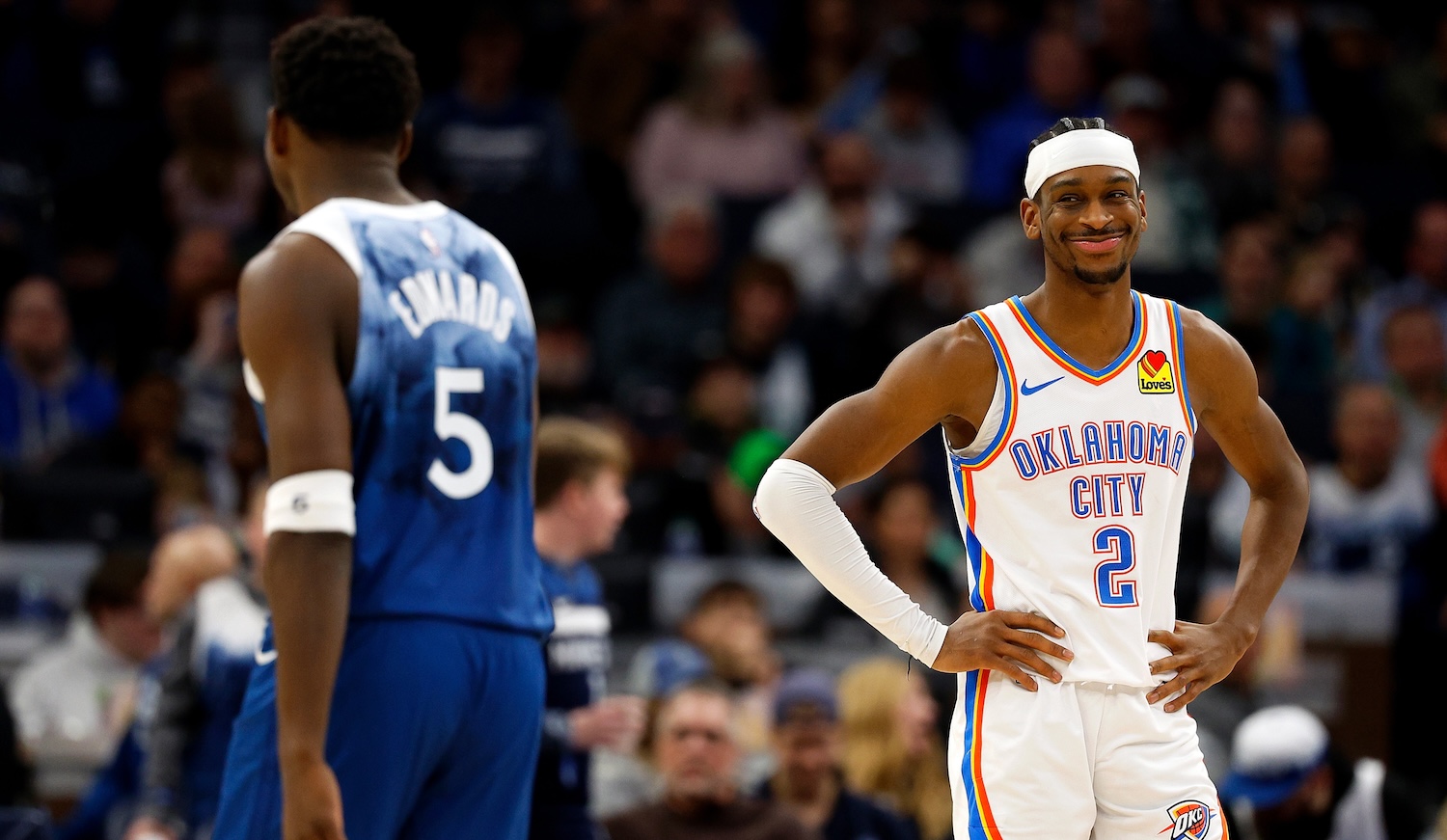With the NBA conference finals matchups set, the most interesting narrative question of these playoffs has been answered. Would the veteran-laden squads who'd done it before triumph again, or would the new generation put their elders out to pasture? The second round was a clear referendum in favor of the zoomer uprising, with the last three champions—the Boston Celtics, Denver Nuggets, and Golden State Warriors—getting eliminated.
When the confetti falls a month from now, the seventh different champion in as many years will hoist the trophy. The four remaining teams have won two titles among them—three if you feel that the 1979 Seattle SuperSonics' title travels (the Oklahoma City Thunder themselves don't wear the gold patch)—and those were over 50 years ago. Something new is going to happen.
The more interesting series of the two that will tip off this week, and the series with wider-ranging implications, is the Western Conference final between the top-seeded Oklahoma City Thunder and the Minnesota Timberwolves. This is true both on the basketball merits—Pacers–Knicks will be great, though the two teams are so different that their series seems like it will be decided by which team can impose its style on the other—and in what's at stake beyond a trip to the Finals. The winner of the Anthony Edwards–Shai Gilgeous-Alexander Aura Bowl will have the chance to be the new face of the league.
If the first two rounds of the playoffs have been about the proven champions sputtering out, then the next two will be about who rises to take their place. This changing of the (shooting) guard comes at a very interesting point in time, with Steph Curry and LeBron James inching toward retirement and none of the non-American superstars who've been the best players in the league for the past six years reaching this round.
The rise of Luka Doncic, Nikola Jokic, Giannis Antetokounmpo, and Joel Embiid, and the specter of Victor Wembanyama, have inspired a fair bit of handwringing about the future (more precisely, the future marketability) of the game to American TV audiences. You can quibble with how much that matters and whether it even truly is a problem—as if Hakeem Olajuwon didn't exist and wasn't widely beloved—but it is true that the league is seeking a new face for itself, and that it's easier to sell Americans to themselves. Consider the extent to which Jayson Tatum, a brilliant basketball player and a charisma vacuum, has been pushed. Most of these worries are theoretical until LeBron and Steph actually retire, but that's coming, and the league needs new guys.
I don't think that anyone left in the playoffs can credibly be thought of as the best player in the NBA heading into next season, though that's not a strictly necessary criterion for facehood. You do have to meet a pretty high performance bar, however—enough to convince people you can be the best player on a championship team for many years to come. Neither New York's Jalen Brunson nor Indiana's Tyrese Haliburton clear it. Edwards and Gilgeous-Alexander, on the other hand, do.
Edwards is an often frustrating and inefficient player who nevertheless inspires fierce loyalty from aesthetes and cranks alike because his game is classically beautiful. He is simultaneously graceful and violent on the court, operating with perfect balance and never getting tilted off his axis, even when he's dunking on guys. He is never afraid of the moment, and he carries himself with the same effortless swagger that Michael Jordan did. Many people in and around the game think of him as the future face of the league more because of those star-making qualities than because of the basketball ones, which can be a somewhat discordant experience when he shoots his team out of games or loafs around. Win the Finals, though, and nobody can say shit.
Gilgeous-Alexander will get his 2024–25 MVP award one of these days, and though he is Canadian, that has been deemed North American enough to get a bunch of ad campaigns, and at any rate has not prevented him from winning the universal respect of his peers. SGA is the best player on the NBA's best team, a position that I think earns him some unfair demerits. The Thunder are the best team in the league primarily because of their swarm-of-locusts approach to defense and their tremendous depth, but their offense is still totally reliant on him. We saw that in the Denver series, when Alex Caruso, of all people, was Oklahoma City's second-best player in the games that mattered. Jalen Williams disappeared, the open threes factory that the Thunder relied on all season ceased production, and all that was left was Gilgeous-Alexander slithering into the lane and scoring.
His game is way less bombastic than Ant's, but I find it only slightly less entrancing. He is a master ball-handler, a knockdown shooter, and a better passer than he gets credit for. The foul-baiting stuff gets annoying, but the same foundational skills he employs to get to the free-throw line are fun to watch when he uses his powers for good. Like Ant, he's totally unflappable. Like Ant, he has the ineffable quality of aura.
Both of these guys are talked about as the possible future face of the league, and either could be; only one of them is going to the Finals, and will have to go over the other one to get there. If they win, they will raise the trophy, winning accolades, esteem, and responsibility for several years of insufferable league TV ratings discourse. Who wouldn't fight for that?
Correction (5:38 p.m. ET): The original version of this post miscounted the number of Knicks championships. It is two, not one.






